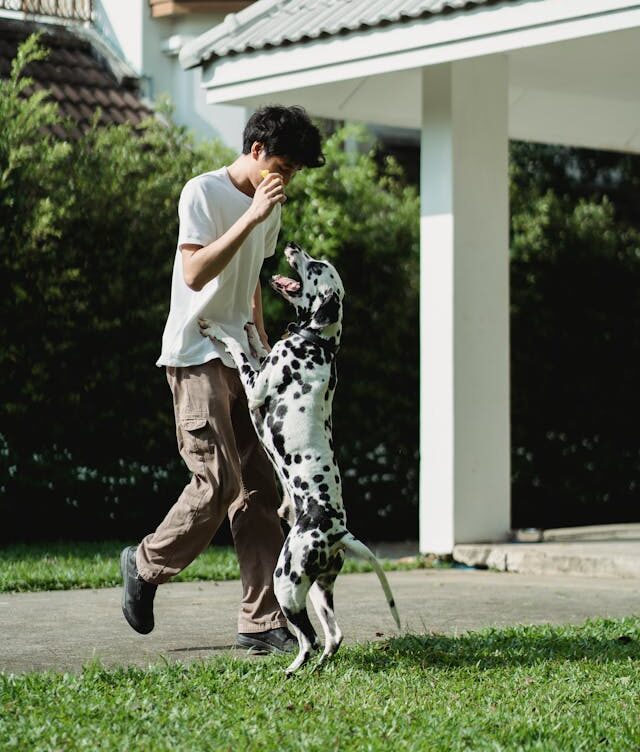
Puppy Socialization Made Simple: Raise a Confident, Happy Dog
Puppy Socialization 101: Unlocking Your Furry Friend’s Future
Understanding the Basics of Puppy Socialization
Welcome to the delightful journey of puppy parenting! Socializing your puppy is an essential part of their development, helping them grow up to be confident and well-adjusted dogs. But what exactly does socialization mean? It involves gradually introducing your puppy to various people, animals, environments, and experiences during their critical socialization period, typically before they are 16 weeks old. This process helps them learn how to react positively and adapt to the world around them.
Research shows that well-socialized puppies are less likely to develop behavior problems later in life such as fear, aggression, or anxiety. According to the American Veterinary Medical Association, early socialization is crucial for the behavioral health of dogs. It’s a proactive way to shape your puppy’s perceptions and prevent the development of fearful responses to new experiences.
However, safety is paramount during socialization. It’s important to ensure that all interactions are controlled and positive, particularly in environments like puppy classes where health risks can be minimized with vaccinated and healthy playmates.
Steps to Socialize Your Puppy Effectively
Starting the socialization process can feel overwhelming, but breaking it down into manageable steps can help. First, expose your puppy to different environments—such as busy streets, parks, and quiet areas—so they can get used to various sounds, sights, and smells. Make each experience as positive as possible, using treats and praise to create positive associations.
Next, introduce your puppy to a variety of people, including children, elderly individuals, and people of different ethnicities. Dressing in various outfits, such as hats and coats, can also help your puppy become comfortable around diverse human appearances. And don’t forget about other animals! Gradual introductions to other healthy, vaccinated pets can foster good social skills.
Enroll your puppy in a well-run puppy class, which can be an excellent way for them to socialize with other dogs in a controlled setting. Professional trainers in these classes use positive reinforcement methods, which support safe and effective learning. As always, consult a veterinarian before starting your puppy on any new social or training regimen to ensure it’s suitable for their health and temperament.
Overcoming Challenges in Puppy Socialization
Every puppy is unique and some might find certain socialization experiences more challenging than others. If your puppy seems fearful or anxious, it’s important to take a step back and slow down the process. Forcing a frightened puppy into overwhelming situations can result in negative experiences and setbacks in their social development.
If issues persist, don’t hesitate to seek advice from a professional dog trainer or behaviorist. These experts can provide tailored strategies and support to ensure your puppy overcomes their fears safely and at a comfortable pace. Positive reinforcement, patience, and persistence are key—reward your puppy for bravery and small steps of progress.
Remember, socializing your puppy is an investment in their future happiness and adaptability. Keep each interaction gentle and controlled, and gradually increase the complexity of their experiences as they grow more confident. Avoid any kind of harsh correction or punishment, as this can instill fear and hinder their social progress.
Long-Term Benefits of Proper Puppy Socialization
Investing time in properly socializing your puppy has numerous long-term benefits. A well-socialized dog is typically more confident, less anxious, and more adaptable when faced with new situations. These qualities can significantly enhance the quality of life for both you and your pet, reducing the likelihood of behavior problems that can arise from fear and anxiety.
Moreover, socialized dogs are generally more manageable and enjoyable to take to public spaces or events. They’re more likely to handle encounters with strangers and other animals calmly and confidently. This ease of integration into various social scenarios enhances their overall well-being and your peace of mind.
In conclusion, taking the time to properly socialize your puppy is a profound gift to both you and your furry friend. It sets the stage for a lifetime of happy encounters and creates a well-rounded, sociable dog. Stick with positive reinforcement, consult professionals when in doubt, and watch your puppy blossom into a confident and joyful companion.
